Iran Air blocks flight to Paris over privatization dispute
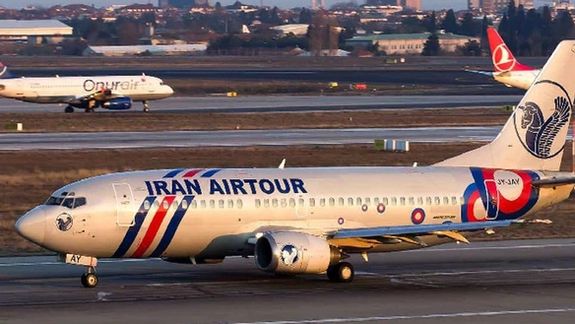
An Iran Airtour flight set to fly from Tehran to Paris on Friday was canceled due to an objection by state carrier Iran Air over a commercial dispute, a source told Iran International.

An Iran Airtour flight set to fly from Tehran to Paris on Friday was canceled due to an objection by state carrier Iran Air over a commercial dispute, a source told Iran International.
The spat blocked what would have been the first flight by an Iranian airline to Europe in nearly three months as sanctions on the country have deepened.
Iran Air's flights to European Union countries were suspended in October last year due to sanctions imposed by the bloc over its involvement in the transfer of Iranian-made UAVs to Russia for use in its war against Ukraine.
Earlier on Thursday, state-affiliated media quoted Iran's Civil Aviation Authority as saying the French government had unexpectedly canceled Iran Airtour's license for flight B9 9770 from Tehran to Paris.
Promised ticket-holders a full refund, the airline blamed the French Civil Aviation Authority for revoking its flight permit without explanation.
The source told Iran International that it was a complaint by the state operator Iran Air that prompted France to cancel permission for the flight.
Iran Airtour and its CEO failed to fulfil commitments during the company’s transfer, the source added, meaning the airline is still considered a subsidiary of Iran Air, the Islamic Republic’s flagship airline.
A review by Iran International found that the privatization process was not complete and there are no legal documents confirming the company’s change into a private-sector entity.
Iran Airtour was established in 1973 by Iran Air and is based in Mashhad in northeast Iran.
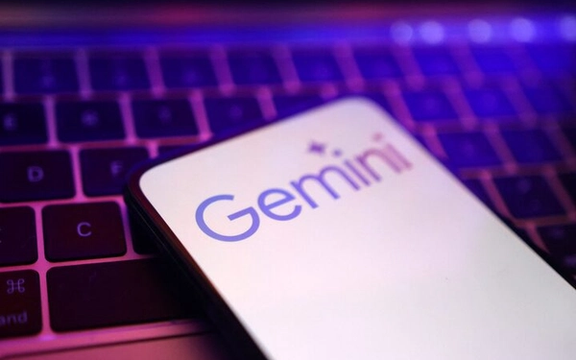
Google says Iranian state-backed actors online are using the tech giant’s AI chatbot Gemini to research defense organizations, foreign governments, and dissidents abroad.
"Iranian government-backed actors accounted for the largest Gemini use linked to advanced persistent threat actors," the company’s Threat Intelligence Group said in a report on Wednesday.
"Across Iranian government-backed actors, we observed a broad scope of research and use cases, including to enable reconnaissance on targets, for research into publicly reported vulnerabilities, to request translation and technical explanations, and to create content for possible use in future campaigns."
State-backed hackers have stepped up strategic intelligence gathering and disruptive cyberattacks, an online security firm reported last year.
Iran views cyberspace as another front in what it describes as a religiously-ordained fight against the United States and Israel.
"Their use reflected strategic Iranian interests including research focused on defense organizations and experts, defense systems, foreign governments, individual dissidents, the Israel-Hamas conflict, and social issues in Iran," Google said.
"Rather than enabling disruptive change, generative AI allows threat actors to move faster and at higher volume," it added.
Google reported that Gemini's safeguards blocked attackers from exploiting it for more advanced attacks like extracting information to influence Google products.
Analysts have long been warning that generative AI, which produces text or media content based on what the user types, can be leveraged to support hacking and disinformation campaigns.
Iranian cyberattacks are now a major problem for governments, industry and cybersecurity professionals globally.
Iran-related hacking groups—which are frequently associated with the Islamic Revolutionary Guard Corps (IRGC)—have been routinely engaged in cyber espionage, cyberattacks and disinformation.
The operations commonly aim at infrastructure, financial institutions, political enemies and foreign adversaries.

Canadian authorities have launched deportation proceedings against an Iranian woman they say was a senior member of the Iranian government, Global News reported on Thursday.
According to the report, the Canada Border Services Agency (CBSA) requested a deportation hearing for Elham Zandi on January 7 under regulations targeting high-ranking officials from Iran, citing the country's Immigration and Refugee Board (IRB).
No date has yet been set for the proceedings and Zandi's alleged role within the Iranian government have not been disclosed, the report said.
The CBSA told Global News it could not discuss the matter due to privacy reasons, while Zandi’s lawyer declined to comment.
Citing government records, the Canadian news outlet reported that Zandi first arrived in Canada as a tourist before applying for a work permit.
When immigration officials investigated her background, the report says she sued the government over delays, seeking $10,000 in damages.
Her case also reportedly caught the attention of Liberal MP Patrick Weiler’s office, which reached out to Immigration, Refugees, and Citizenship Canada at least five times on her behalf.
In July last year, Canadian immigration authorities initiated deportation proceedings against five suspected senior Iranian government officials residing in Canada.
CBSA alleged that these individuals held senior positions in Iran’s government and has requested the Immigration and Refugee Board (IRB) to conduct hearings on these cases.
Prior to that in March 2014, Canada’s Immigration and Refugee Board (IRB) ordered the deportation of Salman Samani, Iran's deputy minister of interior during Hassan Rouhani's term as president.
The tribunal’s verdict was issued in accordance with sanctions imposed on Iranian officials following the 2022 nationwide protests in Iran, sparked by the killing of Mahsa Jina Amini in the custody of the so-called morality police.
Salmani was the second high-ranking Iranian official who had been ordered to leave Canada. In February, Majid Iranmanesh, a director general at Iran's Vice-Presidency for Science and Technology, was also forced to leave.
Canada first barred members of the Islamic Revolutionary Guards' (IRGC) leadership in October 2022.
“The designation of a regime is a permanent decision. This means that more than 10,000 members of the IRGC leadership, for example, will be inadmissible to Canada forever,” Prime Minister Justin Trudeau said at the time.
In June 2024, after pressure from members of the diaspora, Ottawa moved to officially designated the IRGC as a terrorist organization, effectively barring thousands of senior Iranian officials, including top IRGC members, from entering Canada.
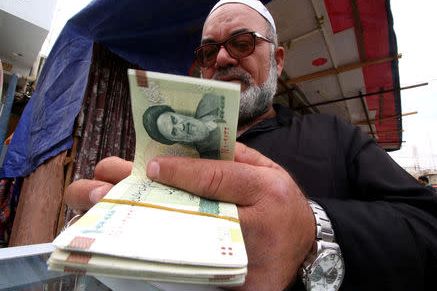
Economist Ali Ghanbari has criticized opponents of Iran joining the money laundering watchdog, the Financial Action Task Force (FATF), accusing them of benefiting from the country's isolation.
"Those who oppose Iran's joining the Financial Action Task Force are profiteers of sanctions and Iran's isolation and want to benefit from this isolation for themselves," he told ISNA in an interview published on Thursday.
He argued that claims that joining FATF would hinder oil sales are unfounded. "The claim that some individuals make, that joining FATF will make it impossible for us to sell oil, is an incorrect justification; because the whole world knows who our oil buyers are."
"Not joining FATF and selling oil through unofficial channels causes about 30% of the proceeds from exports to go into the pockets of intermediaries,” he added.
Ghanbari pointed out that out of 200 countries, only three—Iran, North Korea, and Myanmar—remain outside of FATF. "Even Russia, which has political and commercial relations with us, says join FATF, and if you do not do this, we cannot have economic and commercial exchanges with you," he added.
He expressed hope the Expediency Discernment Council would support FATF membership, which he said has traditionally had negative views about the organization.
The Expediency Discernment Council, which mediates disputes between parliament and the Guardian Council (a constitutional watchdog), became involved after parliament approved the legislation but the Guardian Council rejected the two bills concerning the Palermo and CFT conventions regulating money laundering and financing of terror groups.
Last month, Supreme Leader Ali Khamenei approved revisiting the two critical international conventions required to ease banking restrictions resulting from Iran's blacklisting by the FATF.
The Financial Action Task Force (FATF), established by the G7 member countries to safeguard the international financial system, influences banking policies in most countries and guides businesses aiming to protect their own integrity and reputations.
Iran's status on the FATF blacklist has had a major impact on its international banking operations. The country remains on the list of high-risk countries with serious strategic deficiencies in countering money laundering, terrorist financing, and proliferation financing.
Iran needs to finalize legislation enabling the enactment of two international conventions: the International Convention for the Suppression of the Financing of Terrorism (CFT) and the UN Convention against Transnational Organized Crime (Palermo Convention).
The dispute between the parliament and the Guardian Council was referred to the Expediency Council in 2019 for arbitration.
The Expediency Discernment Council, which mediates disputes between parliament and the Guardian Council (a constitutional watchdog), became involved after parliament approved the legislation but the Guardian Council rejected the two bills concerning the Palermo and CFT conventions regulating money laundering and financing of terror groups.
The Expediency Council has stalled the matter since then, neither approving nor rejecting the bills. The inaction is apparently due to objections from hardliners, such as the Chairman of the Expediency Council Sadeq Amoli Larijani.
They argue that joining the conventions would harm Iran's national security by exposing its dealings with regional Tehran-backed allies—precisely the activities these international agreements are designed to address.
Iran will remain on the FATF's list of High-Risk Jurisdictions Subject to a Call for Action until it fully implements its action plan, including ratifying the Palermo and CFT. Only then will the FATF consider next steps, such as suspending countermeasures.
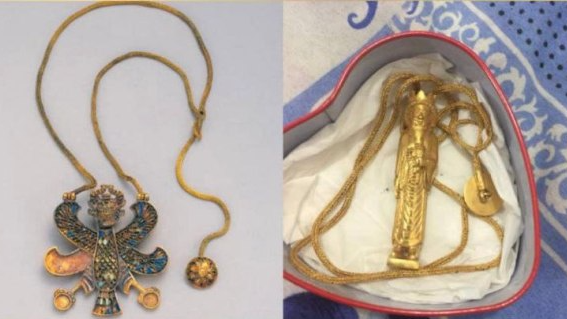
Two Achaemenid era artefacts that were smuggled out of Iran have been sold on the black market in Dubai for a fraction of their true value.
According to SedayeMiras, a website specializing in Iranian cultural heritage, the gold artifacts, originally priced at $3 million, were sold for just $1.1m to two Afghan men.
“The two brothers named Davoodshah and Ahmadshah are part of a group called the Afghan Brothers Gang in the world of artifact smuggling.
"They obtained the stolen treasures in Dubai after they were taken out of Iran by Iranian smugglers,” said the news outlet that covers Iran’s cultural heritage.
The stolen artifacts include a gold pendant depicting Darius I, its heavy gold chain, two ornate gold armlets, a set of Achaemenid-era women's jewelry, and a 2,500-year-old gold diadem.
Despite the scale of the theft mentioned by SedayeMiras, Iran’s Cultural Heritage Organization has yet to comment.
Since the Islamic Revolution in 1979, Iran's government has focused on the promotion of Islamic culture and values, taking a conservative stance on ancient relics predating Islam.
Countless historical sites and artifacts have since suffered from neglect, inadequate maintenance and protection, and the impact of environmental damage.
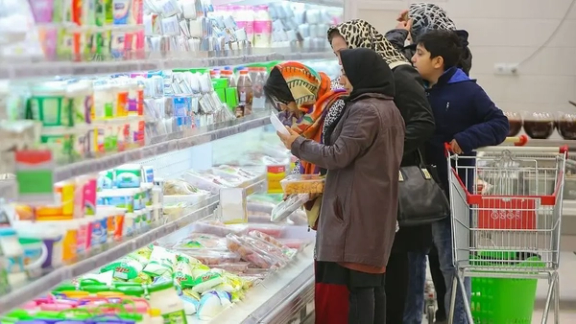
Prices of essential goods in Iran have increased sharply in recent months, with some food items more than doubling, while official government statistics report only a 2% rise.
The Statistical Center of Iran recently reported only a 2% increase in the retail price of cooking oil since last year, whereas market data indicate it jumped by 15%. A similar discrepancy also lies in many other core commodities.
The latest government statistics were released in a report on Wednesday called Average Prices of Selected Food Items in Urban Areas - December 2024.
But analysis of 15 household items by Iran International reveals significant differences between market expectations and government statistics.
The price of My Baby diapers has doubled since September and increased by 140% from February 2024.
The report also shows that the price of imported rice increased by about 22% in December 2024 compared to the previous year.
Iran International also found out that a 10-kg bag of Pakistani rice, worth 6.5 million rials ($7.7) in February 2024, is now selling for about 17.5 million rials ($20.8), up almost 170%.
The same pattern appears in meat prices. Lamb has risen by 27% in the past year, according to the official statistics while the 2025 market prices show an 81% year-on-year rise.
Since 2018, when the US re-imposed economic sanctions under the maximum pressure policy, Iranian currency has dropped nearly 20-fold. In the last five months alone, the rial has lost a further 30% of its value.
On Thursday, every US dollar was exchanged for 840,000 rials in the market.
Over one third of Iranians are now living below the poverty line amid the worst economic crisis since the founding of the Islamic Republic.
Since the crisis kicked in back in 2022, it has led to many Iranians bartering for food items.
This week, in a bid to stabilize soaring potato prices, Iran is now importing 50,000 tons of potatoes, according to the country's deputy agricultural minister.
They will be sold at a target price of about 30 US cents per kilogram, less than half of the current market prices, Akbar Fat’hi said on Wednesday.